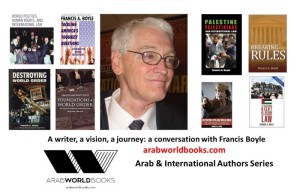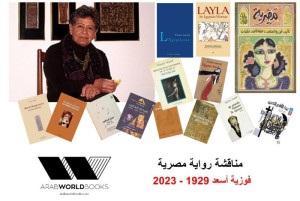By Justin Huggle in Jayous, West Bank
Independent - 02 August 2003
The Shamasni family are well-to-do farmers, but they are living on their own land in the manner of refugees.
They own a comfortable house in the village near by, but they live and sleep under a pitiful tent in the fields. The children do not go to school; instead they sit in the dirt under the tent while the flies swarm around their faces and hands in the summer heat.
They look like earthquake survivors. But it was not a natural disaster that brought the Shamasnis to this. It was Israel's "security fence" - the series of fences and walls Israel is building inside the West Bank, hemming in the Palestinians. The disaster for the Shamasnis is that the fence runs between their home, in the village of Jayous, and their farmland, the family's only source of income.
Now they are living on the land, Yusuf Shamasni says, because the Israeli army will not allow them through a checkpoint in the fence to work the land every day. They are living in a tent because the Israeli army will not allow them to put up a more permanent structure. It is this or go back to the village with no income, no food.
There are 16 people living in the tent, seven of them children. And the Shamasnis are not alone. The rolling fields around them are dotted with the tents of other families in the same, dire situation. There are 40 families living out in the dirt.
This is the reality of the fence that Ariel Sharon, the Prime Minister, insisted this week Israel would go on building despite President George Bush urging him to reconsider - a fence that the US Secretary of State, Colin Powell, said yesterday would "make it very difficult" to press ahead with the international road-map peace plan.
Israel insists the fence is purely for its own security, to stop would-be suicide bombers crossing from the West Bank into Israel. But, if that is the case, why does the fence run 6km (3.5 miles) inside the internationally recognised Green Line that divides Israel from the West Bank at Jayous? If security was the only reason, says Jamal Juma, the co-ordinator of Pengon, a group of Palestinian NGOs opposing the fence, it could run along the Green Line. The real purpose, according to Mr Juma, is to move the border and expropriate Palestinian land.
Under the road-map, an independent Palestinian state is supposed to be set up by 2005, but Mr Juma says Israel is pre-empting any negotiation on borders with the fence.
When Rashid abu Dahir, another local farmer, tried to cross through the checkpoint to irrigate his land - the farm he inherited from his father and his grandfather before that - he says Israeli soldiers refused to let him through and told him: "This is not your land. This is Israeli land."
For the farmers, the situation is bleak. If they get sick, there is no way to get to a doctor except to try to get through the checkpoint. The children would have to do the same to go to school, but the checkpoint is not open frequently enough for that to be possible.
When Mr Shamasni tried to cross with his harvest of potatoes to sell inside the West Bank, Israeli soldiers made him unload the potatoes four times, then stamped on them and ruined them, he says. His son was beaten.
"What kind of a life is this to bring our wives and children to," asks Murad Nofer, Mr Shamasni's neighbour, whose tent is in the next field. "I woke one time in the night and saw my father crying. To see your own father crying, that is something I cannot handle."
The stretch of fence built so far lies only a few miles inside the Green Line, but it cuts off some of the best farmland. In Jayous alone, 300 families have been cut off from their land.
Palestinians fear the later stages of the fence will cut far deeper swaths out of the West Bank. Mr Sharon has said that he intends the fence to cut deep into the West Bank to include the Jewish settlements of Ariel and Emannuel on the "Israeli" side, and that he intends to fence off the entire Jordan Valley - the West Bank's best farmland - from the Palestinians. A section of the fence that is already being built in the north of the Jordan Valley bears out this fear. Based on the Israeli government's statements and actions, Pengon has mapped out a bleak projection of the future - the Palestinians fenced into just 45 per cent of the West Bank, in separate enclaves connected only by fenced roads or tunnels.
Back in the fields outside Jayous, Mr Nofer says Israel has changed the mentality of the villagers. "If this land is taken from us, nobody can blame us for what we do," he says angrily. Some of the villagers may become suicide bombers. Very few of the bombers have been from the villages; most came from Palestinian cities. But in October last year, the first two villagers from here carried out a suicide bombing, in the Israeli city of Netanya. Mr Shamasni said: "This land came to us from our fathers and our ancestors. We are not leaving it."
By Justin Huggle in Jayous
Wall makes Palestinian farmers refugees on their own land
By: Editor - on: Tuesday 7 November 2017 - Genre: Palestine File
Upcoming Events

Joseph Conrad's Heart of Darkness Discussion
April 27, 2024
Join us for a special discussion of Joseph Conrad&...

A writer, a vision, a journey: a conversation with Francis Boyle
February 24, 2024
This event took place on 24 February 2024 Yo...

Discussion of Fawzia Assaad’s An Egyptian Woman
November 25, 2023
In celebration of the life and outstanding achieve...

Toni Morrison's The Bluest Eye, A Presentation and Discussion
October 28, 2023
This presentation and discussion of Toni Morrison&...
